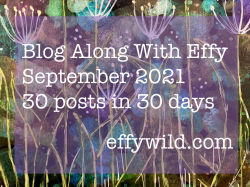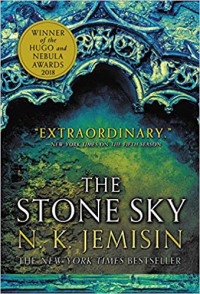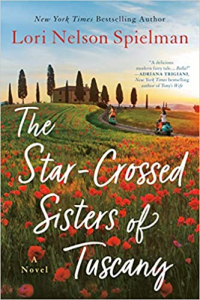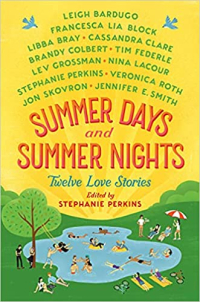Last week, one of the tidbits of local news catching everyone's attention was a story about a high school chemistry teacher. She taught at the same high school where I used to teach. On the first day of school, something set her off and she went off on a rant. She talked about how much she hates trump because he is a horrible person, her opinion of her students' parents who haven't gotten them vaccinated yet (she thinks they are stupid), how students who think environmental issues are a hoax can get out of her class, as could anyone who takes offense at her willingness to defend LGBTQ students.
One of the students in her class very carefully recorded this meltdown. As I watched her pace and shout, my body responded; I have been in her same shoes, feeling like a cheetah trapped in a cage, unable to get the words out fast enough to express my anger and frustration. I never melted down quite so spectacularly as she did (and no one recorded it) but I did have a few meltdowns. So as I watched, my response was one of empathy and compassion.
Friends and family members, and some of their friends, did not respond the same.
I should've just stayed out of the discussion on Facebook. I mean, when will I learn? I believe so firmly in standing up for my opinion. But when I do, especially over the last three years, it has been met by so much staunch opposition. Strike that—it's not the opposition to my opinion that bothers me. I am OK with not everyone agreeing with me, and wouldn't, in all honesty, want a world where everyone had the same opinion.
What I am struggling with is the derision that accompanies the opposition. The suggestion (or sometimes the outright spoken) idea that I'm one of those flaming left, special snowflake libtards who don't live in the real world. Last week in that discussion, someone much younger than me tried to explain both teaching and the difference between fact and opinion to me. (Gee, thanks. They didn't teach us any of that when I got my English degree. Or my TEACHING degree for God's sake.)
Even though I didn't engage as much as I could have, I left that discussion feeling a little bit bruised.
Definitely feeling that my extended family, for the most part, neither understands me not respects the types of intelligence I have. I felt supported by my daughter but very lonely otherwise.
All of which is the reason why I am writing about this week's local news on my blog instead of my Facebook feed. I still want to share my opinion but it feels safer here because of course most of them are too busy to read my silly little blog, which is just fine with me.
One of the leaders of the LDS church, which is the dominant faith in Utah, gave a speech yesterday. A very divisive speech about LGBTQ+ support and how it contradicts all of the church's teachings. The essence of the speech is that BYU is not a place that should be promoting equality. Alumni are hurting to see their old alma mater have things like Pride parades and Departments of Equality and especially, God forbid, professors who actually discuss gender equality in any form. The higher learning institutions of the One True Church shouldn't be places where those creepy gays feel welcome, and especially not the married ones. (If they keep it hidden it's OK to overlook it though. Secret, not sacred.) This leader actually, literally said this:
"We have to be careful that love and empathy do not get interpreted as condoning and advocacy."
And then he declared that students should defend traditional marriage and heteronormativity with bullets. With a musket. (Yes, yes, backpedal, it’s all metaphorical, but I hardly think that matters. Just using a metaphor of violence is violent.)
Deep breath.
I am so, so tired.
I am exhausted by all of the things in society (both specifically to Utah and in the world at large) that are cruel. Overwhelmed by how many issues there are to discuss and to fight for. Salary disparity. Poverty and homelessness. The stupid gondola some rich bastard wants Utah taxpayers to pay for in the canyon where his ski resort is. The fact that a news reporter yesterday said "Afghanistan is about to undergo a femicide." The fact that she is right. Global warming. Anti-vaxxers. The threats to Roe v. Wade. Housing and tuition prices. Racism. Women’s rights. Wildfires. Garbage patches in the ocean. (Just some of the issues I pay attention to, worry over, and contact my senator about.)
And over and over and over again, the church I used to think I loved reminds me that it is not a safe space. It isn't a place—the building nor the institution—where I can turn for refuge, comfort, acceptance, or love, but more tension, stress, and disappointment.
Let’s be clear: I’m not gay. In theory, what the church says about LGBTQ+ people doesn’t affect me personally.
But, then. My daughter is bisexual.
And I have many LGBTQ+ friends.
And even if I didn’t. I’m also not a bear in the woods but I still care how they are treated.
The implicit violence and disgust, the explicit lack of understanding. The way that talk makes the church the victim.
It is wrong.
Even if it doesn’t hurt me personally, it is wrong.
The church isn’t the victim. The irony is, the church created the victims by the way they treated—continue to treat—people who aren’t cisgender. They have excluded, derided, cast into outer darkness. And then they have the gall to say that members are hurting because of what professors are teaching about equality at BYU?
I’m sorry, but are you fucking kidding me?
Not many people have asked me. Even though I was an active church member for more than 25 years in the same congregation, when I stopped going to church only one very close friend in my neighborhood has discussed why with me. For the rest of them, I just disappeared. Which, really: that’s fine. I’m just acknowledging that I understand very few people might care to read what I’m going to write next.
But this: I could write an entire book about it (and have considered it, in fact), but when it all boils down to one specific point, this is why I stopped being able to go to church.
In the LDS church, there is one way to be good. You follow all the nintybillion rules they’ve made, for starters. And then you have to be “normal,” which is: white, preferably male, wealthy, and heterosexual. You must have children and then raise them to be the same way.
If you deviate from that normal, there is the appearance of acceptance, but deep down? At the root of it?
You aren’t really good. You can achieve good-ish, maybe, if you work really hard and are willing to accept that label, but you’ll never be really, truly, actually good.
I stopped going to church because I accepted two things: I am not their version of “good” and the vast majority of people I love deeply aren’t either. For the most part, the only marker I have for Mormon goodness is the color of my skin and my sexuality. I couldn’t pretend their version of goodness resonated with my version. Not for a second longer.
Once I began to understand and see that, I couldn’t stop seeing it. Even from the outside, it is glaring.
The church’s very narrow definition of what makes a good person does not work for me anymore. I am finding my own definition of goodness, and if I boil that down, here is how I see it:
Good people love each other. Good people try to treat each other kindly, take care of each other, and try to see people as individuals. They also try to take care of the earth, to see the world in realistic ways and understand their place within it—we all have so much to learn, improvements to make, and answers to seek out (no one knows them all. No one.)
So, for me, loving people who are LGBTQ+ doesn’t mean I love them despite that part of them. But because it is a part of who they are.
Love can’t be advocacy?
I believe advocacy is a part of loving people. We advocate for what we care about. And what I care about is people having access to the same freedoms—love, marriage, families, happiness, success, no matter their color, race, gender, religion or any other label.
And while I am tired, while I am right now finding it hard to advocate in large ways, I will continue holding on to knowing what I know. (Can an opinion be a fact too? I think it can.)
People deserve to be loved for who they are. My job is never to “fix” anyone, but to love them, and often loving them does look like advocating for them. If the LDS church doesn’t understand that, they don’t get to have me in attendance, and if that doesn’t bother them, that is OK.
One of my favorite thoughts comes from Rachel Carson:
We must be able to separate the trivia of today from the enduring realities of the long tomorrow. Having recognized and defined our values, we must defend them without fear and without apology.
For far too long, the trivia of today has been to invalidate people outside the norm. I hope I can somehow find the strength to contribute something more meaningful than that to the long tomorrow. Her words—and those of so many other writers, thinkers, creative types, artists, philosophers, and everyday people—have given me so much more courage to choose the right than those of the leaders of the church. I grieve for that still—I grieve to know I will never find peace or acceptance there, partly because I don’t fit but largely because so many others don’t fit either.
[I purposefully did not include a link here to the speech in question. You could google the quote I shared to find the complete text if you want to read it.]
 Back in April I did a month-long blogging challenge and I enjoyed it so much. It was stimulating to write a blog post and know someone else would read it. In September, Effy Wild is doing another blog challenge so I'm going to join in.
Back in April I did a month-long blogging challenge and I enjoyed it so much. It was stimulating to write a blog post and know someone else would read it. In September, Effy Wild is doing another blog challenge so I'm going to join in.

